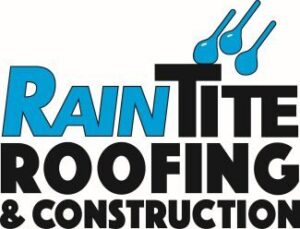As a responsible homeowner, investing in a durable and high-quality roofing system is a top priority, but equally important is understanding the roof warranties that accompany your investment. Roof warranties provide a level of assurance that your roof will perform as expected, protecting your home against the elements and potential defects. However, it can be challenging to navigate the intricacies of roofing warranties, as they involve various terms, types, coverage details, and limitations.
Our goal is to equip you with the knowledge required to effectively assess and compare roof warranties, ensuring you make informed decisions regarding product quality, installation, and ongoing roof maintenance. By doing so, you can better protect your investment, maximize your roof’s lifespan, and maintain your home’s structural integrity and comfort.
The Purpose and Benefits of Roof Warranties
Roof warranties are a critical component of your roofing system investment, providing you with assurances for the product quality, workmanship, and overall performance of your roof. The primary benefits of having a solid roof warranty include:
1. Financial protection: A warranty acts as a safeguard against unanticipated costs related to material defects or installation errors, ensuring you don’t have to bear the expenses of repairs or replacements due to these issues.
2. Peace of mind: Knowing that your roof is backed by a reliable warranty can provide a sense of security and confidence in the performance and longevity of your roofing system.
3. Quality assurance: Warranties typically reflect a manufacturer’s or contractor’s confidence in their product and workmanship, meaning a comprehensive warranty often indicates a high-quality roofing solution.
Types of Roof Warranties: Manufacturer Warranties vs. Workmanship Warranties
Roof warranties generally fall into two categories: manufacturer warranties, which cover material defects, and workmanship warranties, which cover installation-related issues. Understanding the difference between these two warranties is crucial to ensure you’re adequately protected:
1. Manufacturer warranties: These warranties are provided by the roofing material manufacturers, covering potential defects in their products. This type of warranty usually covers the cost of materials required to repair your roof, or the replacement cost of defective materials. It is essential to understand the duration and any exclusions or limitations specified in a manufacturer warranty.
2. Workmanship warranties: These warranties, also known as contractor or labor warranties, are provided by the roofing company responsible for installing your roof. They cover issues stemming from improper installation methods, which may cause damage or shorten the lifespan of your roofing system. Workmanship warranties vary in duration and coverage, so it’s vital to choose a reputable and licensed contractor that offers a comprehensive warranty.
Understanding Warranty Coverage Details and Limitations
Roof warranties can differ significantly in their coverage and limitations. To ensure you have adequate protection, consider the following aspects when comparing warranties:
1. Duration: Warranties differ in their coverage periods, with some offering limited or non-prorated coverage. Ensure you understand the duration of your warranty and how it may affect your coverage in case of potential issues.
2. Material and labor coverage: Some warranties cover only material costs, while others include both materials and labor costs. It’s essential to choose a warranty with comprehensive coverage for both aspects.
3. Transferability: If you plan to sell your home in the future, a transferable warranty can be a valuable selling point. Check the terms of your warranty to see if it can be transferred to a subsequent owner.
4. Exclusions and limitations: Warranties typically have specific exclusions or limitations, such as damage from natural disasters, neglect, or improper maintenance. Make sure you’re aware of these conditions to preserve your warranty coverage.
The Role of Proper Installation and Maintenance in Preserving Your Warranty
Your roof warranty’s validity is often contingent on correct installation and regular maintenance. Here’s how you can ensure that your warranty remains effective:
1. Select a reputable contractor: A professional and well-established roofing company will adhere to industry best practices and installation guidelines. Choosing such a contractor will help ensure that your roof is installed correctly, minimizing the potential for voiding your warranty.
2. Regular maintenance: Roofing warranties often specify regular maintenance and inspections as a prerequisite for maintaining coverage. By performing routine maintenance, you not only preserve your warranty but also prolong your roof’s lifespan and improve its overall performance.
3. Promptly address issues: If you notice any problems with your roof, such as leaks, missing shingles, or other damages, promptly contact your roofing contractor. Delaying these repairs may exacerbate the issue and could negatively impact your warranty coverage.
Conclusion
Understanding the intricacies of roof warranties is crucial for protecting your investment, maximizing your roofing system’s lifespan, and ensuring your home’s long-term structural integrity. By researching and comparing various warranty options, and working with a reputable roofing contractor, you can better navigate the complexities of roofing warranties, giving you greater confidence in the security of your home.
For expert assistance with roof repairs, replacements, and warranty considerations in Rapid City, look no further than RainTite Roofing & Construction. Our professional team is dedicated to providing you with tailored roofing solutions and comprehensive warranty options to ensure your home is well-protected. Contact us today for affordable roofing services.

